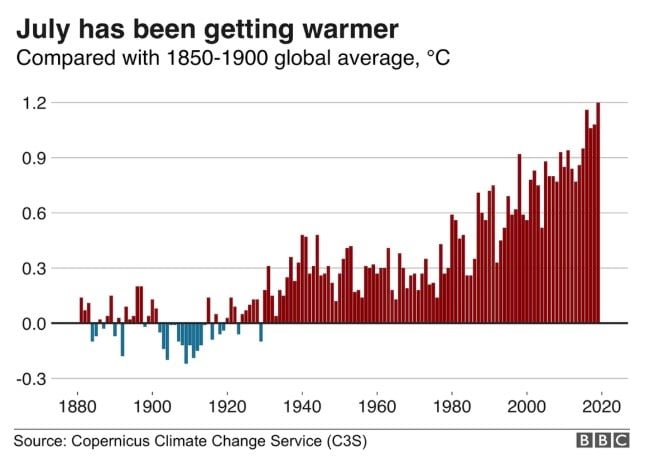In July 2019, we spent the hottest month in human history.
This news has been world weather The organization was released last Thursday, confirming the fact that the global climate is accelerating warming.
UN Secretary-General Antonio Guterres said at a news conference that the global average temperature in July this year has exceeded the record of the hottest month in history, 1.2 degrees higher than the pre-industrial period, already very Close to the threshold point.
According to the goals of the December 2015 Paris Agreement Nearly 200 UN states have pledged to keep the global temperature increase within 2 degrees from the pre-industrial period and strive to limit the temperature increase to 1.5 degrees.
But if you follow the current trend of growth, by 2030, the global average temperature will rise by more than 1.5 degrees, and by the end of the century it will reach 3.3 degrees.

▲ Image from: VOA News
The UN report pointed out that this wave of heat was originally from the hot air of North Africa and Spain, and gradually spread to Western Europe such as the United Kingdom, Germany, the Netherlands and Belgium. Many countries recorded more than 40 in June and July this year. The high temperature record, in which the temperature in Paris, France, once soared to 42.6 degrees.
▲ In early July, satellite fires were seen in the Kekkata district of western Greenland. Image from: The Atlantic
After that, the heat wave further affected Greenland in the Arctic. In the past, the melting of ice sheets in Greenland often occurred around the end of May each year, but this year it is early to the beginning of the year.
According to scientists’ predictions, even if greenhouse gas emissions are limited, the Arctic will have no ice in the summer around 2040.
